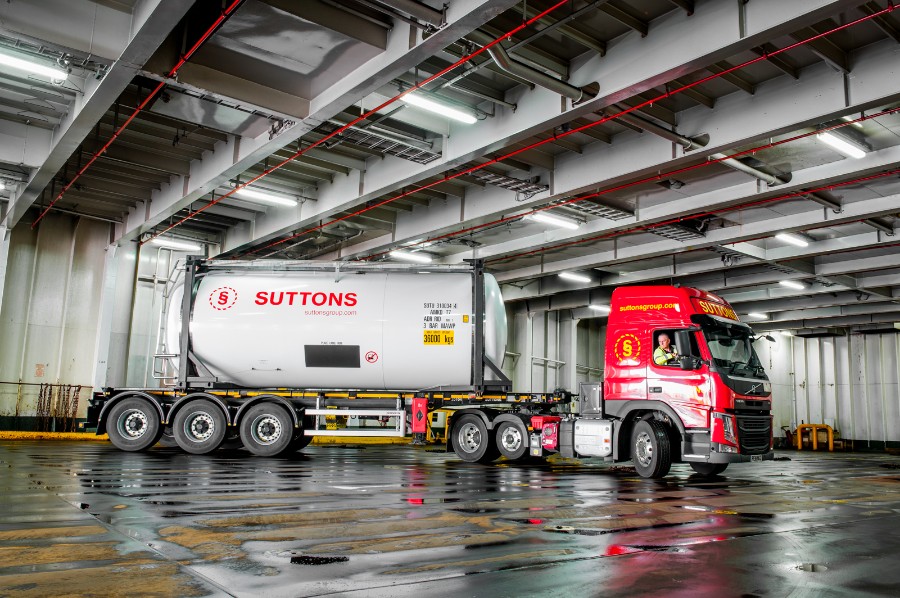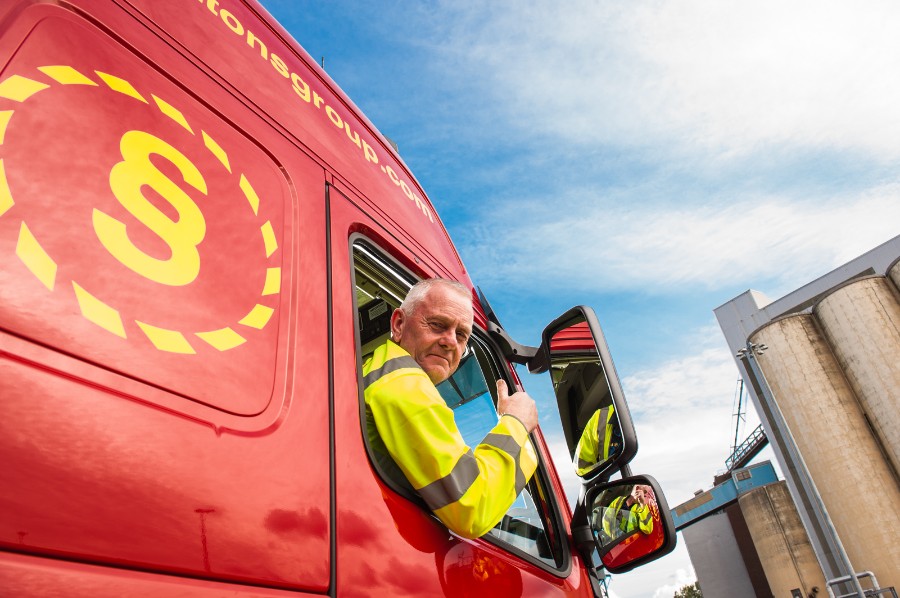A report from the UK government suggested that road transport made up 91% of the greenhouse gas emissions from the transport sector.
Heavy goods vehicles (HGVs) made up 18% of this contribution. This shows just how big of an impact HGVs have on the environment.
That is why many initiatives are being implemented to try and limit this impact.
We have developed an ESG policy here at Suttons Tankers. With this policy, we aim to implement a number of initiatives that will help us reduce our carbon footprint.
In this article, we’ll talk about what the future of haulage fuels looks like and how it will help limit the number of greenhouse gases in the transport industry.

Current Challenges in Haulage Fuels
Diesel Fuel
Diesel fuel has long been the preferred choice of haulage vehicle fuel due to its energy density, which allows trucks to carry heavy loads over long distances with relatively fewer refuelling stops.
However, this reliance on fossil fuels comes with several drawbacks, both environmental and economic.
Diesel-powered trucks are significant contributors to greenhouse gas emissions, particularly carbon dioxide (CO2), which is a major driver of climate change.
The combustion of diesel fuel releases CO2 into the atmosphere, contributing to global warming and its associated impacts such as rising sea levels, extreme weather events, and disruptions to ecosystems.
In addition to CO2 emissions, diesel engines also emit harmful pollutants such as nitrogen oxides (NOx) and particulate matter (PM).
NOx emissions contribute to the formation of smog and acid rain, while PM emissions are associated with respiratory illnesses, cardiovascular diseases, and premature death.
Poor air quality from diesel emissions poses risks to both human health and the environment.
It is estimated that 8.34 million deaths per year occur relating to air pollution.
Government Regulatory Pressures
In the UK, government regulatory pressures regarding haulage fuels primarily focus on:
- Reducing emissions.
- Improving air quality.
- Adopting cleaner and more sustainable transportation solutions.
The UK government has implemented strict emission standards for vehicles, including haulage trucks, to limit the amount of pollutants they can emit.

The Euro VI emissions standards, which set limits on nitrogen oxides and particulate matter emissions, are enforced for all new heavy-duty vehicles sold in the UK.
These standards aim to reduce air pollution and improve air quality in urban areas.
Several cities across the UK have implemented Clean Air Zones (CAZs) to tackle air pollution from vehicles, including haulage trucks.
These zones impose charges or restrictions on vehicles that do not meet certain emission standards, encouraging the adoption of cleaner technologies and alternative fuels.
Haulage companies operating in CAZs may face additional costs if their vehicles do not comply with the emissions requirements.
The UK government has introduced sector specific carbon pricing mechanisms to put a price on carbon emissions and incentivise businesses to reduce their carbon footprint.
While compliance with these regulations may not be mandatory for haulage companies at present, there is growing pressure for them to embrace cleaner technologies and explore alternative fuels for HGVs to minimise their environmental impact and align with emerging regulatory standards.
What is the Future of Haulage Fuels?
The future of haulage fuels is likely to see a shift towards cleaner and more sustainable alternatives. Here are some of our predictions:
Transition to Alternative Fuels

Electric vehicles (EVs) have gained considerable attention due to their zero-emission operation and potential for reducing greenhouse gas emissions.
Advances in battery technology have led to increased energy density, longer driving ranges, and decreased costs.
The expansion of charging infrastructure, both for private and commercial vehicles, is crucial for the widespread adoption of electric haulage.
Hydrogen-powered vehicles are also a consideration.
Hydrogen fuel cell technology offers a promising alternative to diesel for heavy-duty haulage.
Fuel cell trucks emit only water vapour and can be refuelled quickly, making them suitable for long-haul applications.
However, challenges such as the high cost of fuel cells, limited hydrogen infrastructure, and the need for renewable hydrogen production hinder widespread adoption.
Moreover, it’s noteworthy that neither electric nor hydrogen trucks currently comply with the ADR regulations. This limitation underscores the appeal of renewable liquid fuels, such as HVO, for businesses that have to comply with ADR.
Biofuels
Biofuels derived from renewable sources offer a way to reduce carbon emissions in existing diesel engines.
Advanced biofuels, such as cellulosic ethanol and renewable diesel, have the potential to significantly lower the carbon intensity of haulage fuels.
At Suttons Tankers we embarked on an eight-week trial using Hydrotreated Vegetable Oil (HVO) as an alternative fuel.
Hydrotreated Vegetable Oil (HVO) is a renewable diesel fuel made from used cooking oils or through a process called hydrotreating.
This process involves the removal of impurities and saturation of unsaturated bonds in the feedstock, resulting in high-quality diesel fuel alternatives that can be used in conventional diesel engines without modification.
However, challenges such as scalability, and cost competitiveness remain significant barriers to the widespread adoption of biofuels in the haulage sector.
Integration of Renewable Energy
The integration of renewable energy sources such as solar and wind power into the production of alternative fuels can further reduce the carbon footprint of haulage operations.
Renewable electricity can be used to produce hydrogen through electrolysis or to charge electric vehicles, contributing to decarbonisation efforts.
Investment in renewable energy infrastructure and technologies is crucial to ensure the sustainability of alternative fuels and reduce the environmental impact of haulage operations.

A Renewable Future at Suttons Tankers
The push for a more sustainable future has never been greater.
As a leader within the transport industry, we’re always looking for ways to further help us reduce our greenhouse gas emissions.
Helping create a more sustainable and promising future for our industry.